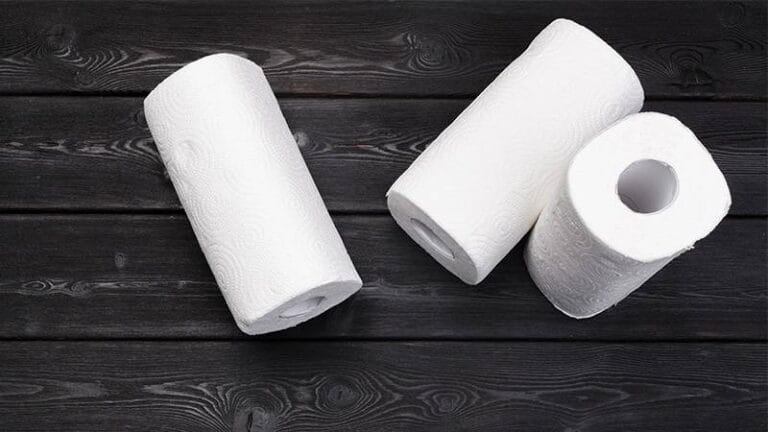In my two decades dedicated to the art and science of composting, a question I often encounter is, “are paper towels compostable?” It’s a valid query, especially in our growing age of environmental consciousness.
Paper towels are ubiquitous in our homes, and knowing how to handle their disposal can have a meaningful impact on our ecological footprint.
In this comprehensive guide, I’ll be diving deep into the world of paper towels and composting, shedding light on their decomposability, the time they take to break down, their advantages and drawbacks in the compost bin, and much more.
Buckle up, fellow composting enthusiasts, for an enlightening journey!
Can You Compost Paper Towels?
The straightforward answer? Yes, you absolutely can compost paper towels! Their very nature, being derived from organic material, makes them a suitable addition to your compost bin.
Here’s a bit of the science behind it: paper towels are made primarily of cellulose fibers, which are a natural component of plant cell walls. These fibers, when introduced to the moist, warm environment of a compost pile, provide an appetizing feast for microorganisms.
As these tiny creatures munch away, the paper towels break down, returning to the soil as valuable, nutrient-rich compost.
However, there’s a slight catch. Not all paper towels are created equal. While the core material is compostable, some paper towels come decorated with colorful prints or patterns.
These inks and dyes can introduce unwanted toxins into your compost. Before adding them to your composting environment, it’s essential to ensure they are free of such contaminants. When in doubt, opt for unbleached, undyed paper towels, as these are the most eco-friendly and won’t jeopardize the health of your compost or the plants benefiting from it.
Always be conscious of sustainable living choices, especially when it concerns the waste we generate.
Are Dirty Paper Towels Compostable?
Yes, dirty paper towels can be composted. However, the type of “dirt” matters. Here’s a breakdown:
Organic Matter
If the paper towel is soiled with organic residues like food spills, vegetable juices, or similar, it’s perfectly fine for composting. Such organic matter can actually be beneficial, providing additional nutrients and helping to kick-start the composting process.
Non-organic or Toxic Matter
If the paper towel has been used to clean up chemicals, oils, or other potentially hazardous materials, it should not be composted. These contaminants can harm the microorganisms essential for composting and may also introduce toxins into the finished compost, making it unsafe for plants and potentially leaching into the surrounding environment.
Health Concerns
Paper towels used in personal hygiene or to clean up bodily fluids should be discarded in the trash rather than composted, primarily due to health concerns and potential pathogens they may carry.
Always consider the source of the “dirt” when deciding to compost dirty paper towels. When in doubt, it’s better to err on the side of caution and dispose of them in another manner.
How Quickly Do Paper Towels Decompose?
In an ideal composting environment, paper towels can decompose within a few weeks to a couple of months. The decomposition rate, however, isn’t universal. It depends on several factors:
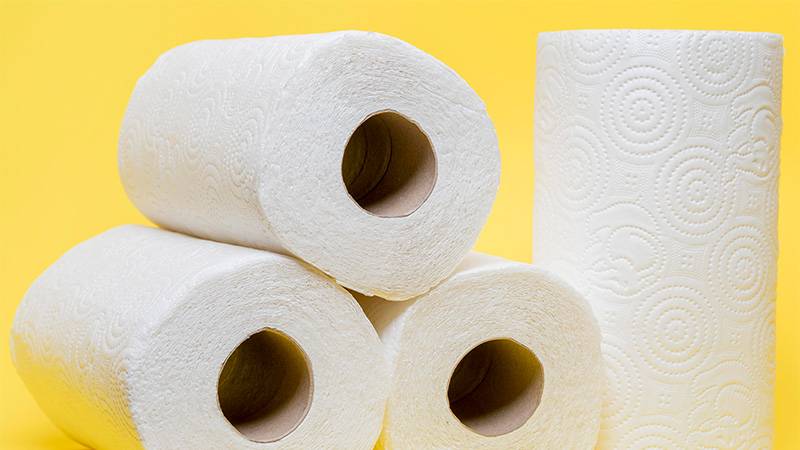
Environment
A moist, warm compost pile with ample microorganisms will break down paper towels quicker than a dry, cold pile. The presence of other organic material, like food waste or green waste, can also speed up the process by providing diverse nutrients and fostering a thriving microbial community.
Paper Type
Not all paper towels are equal in the eyes of decomposition. Thicker, multi-ply towels might take a tad longer than their single-ply counterparts. Unbleached and undyed versions tend to decompose a bit faster, given they lack chemicals that might inhibit the process.
Air Circulation
Good air circulation promotes aerobic decomposition. The more oxygen available, the quicker and more efficiently microorganisms can work to break down the cellulose fibers in the paper towels.
How to Compost Paper Towels
Composting paper towels is a seamless way to promote sustainable living and reduce our ecological footprint. By turning what’s typically considered waste into nutrient-rich compost, you can feed the soil and nurture plants in a way that benefits our planet. Here’s a step-by-step guide to get you started:
Steps
Step 1: Gather Your Tools and Materials
- Paper towels
- A compost bin or pile
- Green waste such as vegetable scraps, fruit peels, or grass clippings
- Brown waste like dry leaves, twigs, and, of course, paper towels
- A shovel or pitchfork
- Watering can or hose (optional but helpful)
Step 2: Layering
Begin by adding a layer of brown waste to the base of your compost bin or pile. This aids in air circulation, which is essential for aerobic decomposition. Place your paper towels on this base layer.
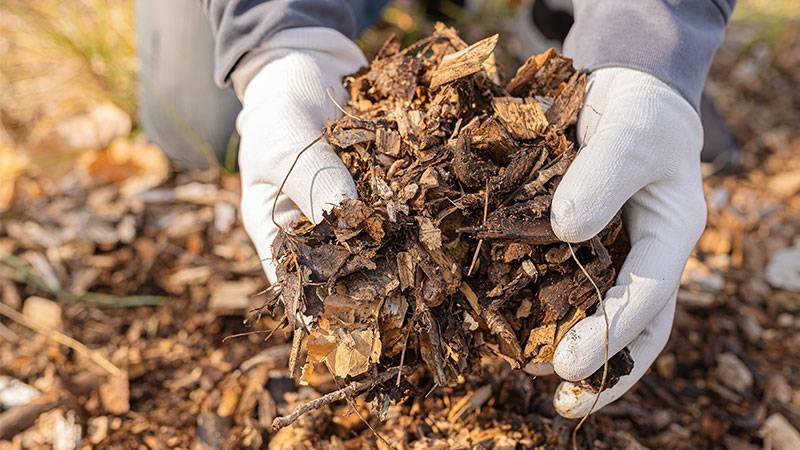
Step 3: Add Green Waste
Cover the paper towels with green waste. This provides the necessary nitrogen for the composting process and fosters a thriving microbial community.
Step 4: Maintain Moisture Levels
Ensure that your compost remains moist but not soggy. Think of the consistency of a wrung-out sponge. Water occasionally if the compost seems too dry.
Step 5: Turn the Compost
Using your shovel or pitchfork, turn the compost every week or so to introduce air and speed up the decomposition process.
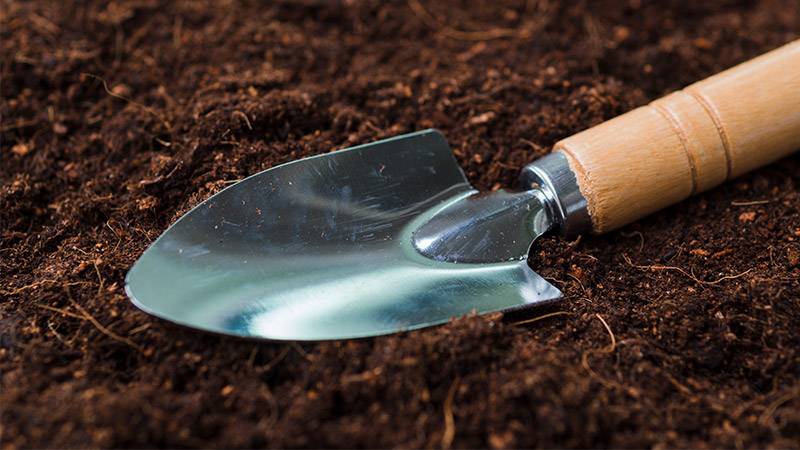
Tips for Speeding Up Decomposition
Tear the Paper Towels
Breaking them into smaller pieces increases the surface area for microbes to work on.
Balance Green and Brown Waste
A balanced mix ensures the pile heats up, promoting faster decomposition.
Regularly Turn the Pile
This keeps the compost aerated and evenly decomposing.
Pros and Cons of Composting Paper Towels
In the vast realm of composting, every organic material we introduce has its merits and drawbacks. Let’s delve into the specifics of composting paper towels, considering both the benefits it brings and the challenges it might pose.
Pros
Environmental Benefits
When you opt for composting, you’re making a significant stride towards sustainable living. By composting paper towels, we reduce the need for landfills, which emit methane—a greenhouse gas far more potent than carbon dioxide. By cutting back on methane emissions, we’re doing our part to combat climate change.
Waste Reduction
It’s alarming how much waste a single household can produce. Paper towels, being frequently used, contribute a fair share to this tally. Composting them ensures that instead of piling up in a landfill, they’re getting a second life, turning into something beneficial.
Soil Enrichment
Composted paper towels add to the organic material of your compost. When this is mixed with the soil, it boosts its texture and fertility. This enriched soil promotes plant growth, ensures better water retention, and fosters a thriving ecosystem below the ground.
Cons
Potential Toxins from Inks/Dyes
As delightful as those printed and colorful paper towels might look in your kitchen, they could be a source of toxins in your compost. Inks and dyes, unless explicitly marked as eco-friendly, can introduce chemicals that might not be conducive for a healthy compost pile or the plants that will benefit from it.
Slows Down Overall Composting Time
While paper towels do decompose, they might take longer than some other green waste. If your apartment compost bin is predominantly filled with paper towels, you might find the entire pile taking a tad longer to turn into mature compost.
Taking Up Valuable Compost Space
In smaller composting setups, space is gold. Devoting a large chunk to paper towels means there’s less room for diverse organic materials, which might limit the quality and nutritional diversity of your resulting compost.
Alternatives to Paper Towels
In our quest for sustainable living, it’s essential to explore alternatives to common household items, especially those that have a significant environmental impact. While paper towels offer convenience, their continuous use can lead to increased waste and consumption of natural resources.
By seeking alternatives, we not only reduce our ecological footprint but often find solutions that are more sustainable and cost-effective in the long run.
Reusable Cloths
Made from cotton or other sustainable materials, these cloths can be washed and reused multiple times, cutting down on waste and saving money.
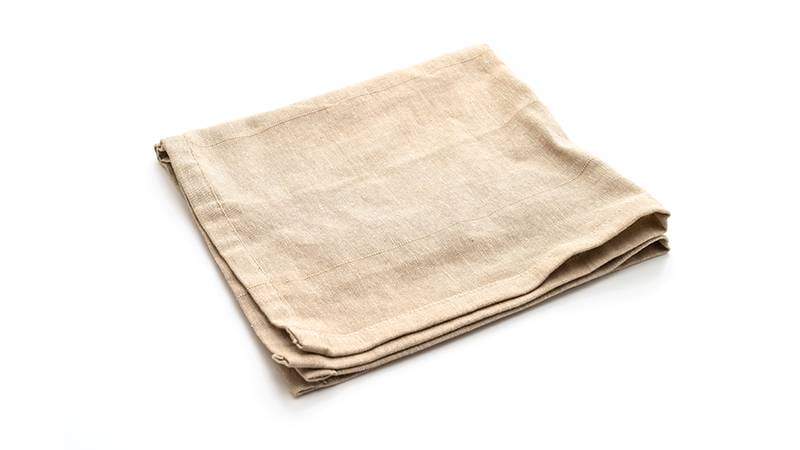
Microfiber Towels
Highly absorbent and long-lasting, microfiber towels can tackle spills and messes without the need for frequent replacements.
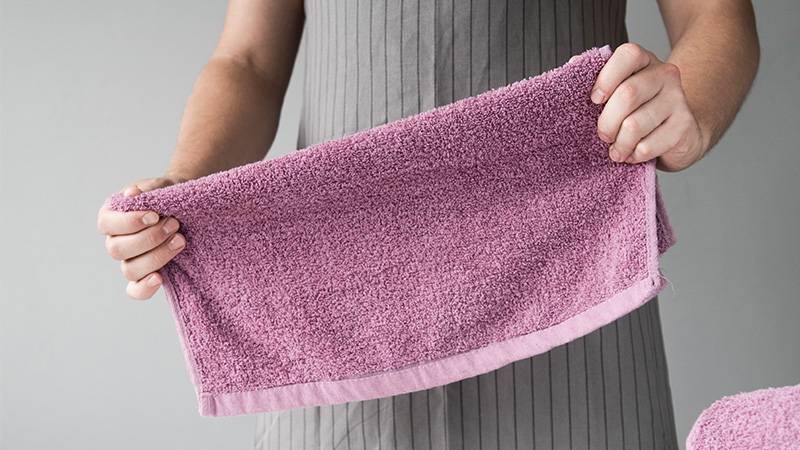
Beeswax Wraps
Ideal for covering food, these eco-friendly wraps can be used multiple times, reducing the need for disposable paper products in the kitchen.
Cloth Napkins
An elegant and environmentally-friendly choice for meal times. Wash and reuse, and you’ll find they’re not only greener but add a touch of sophistication to your dining experience.
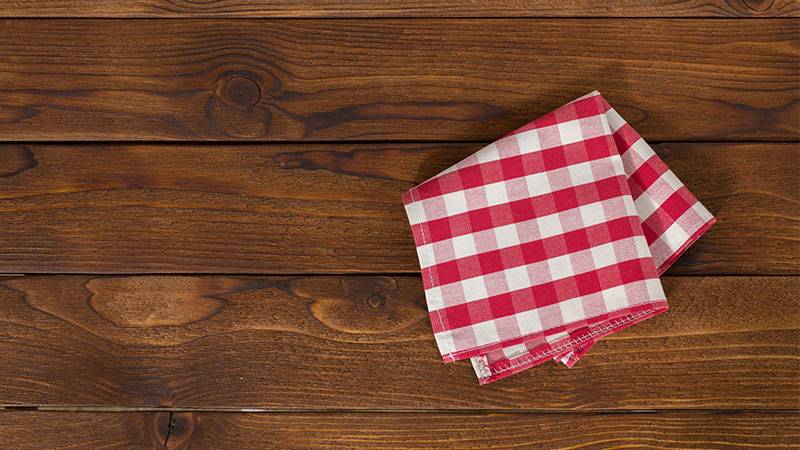
Old T-Shirts
Before discarding worn-out shirts, consider repurposing them as rags for cleaning. They’re soft, absorbent, and an excellent way to upcycle.
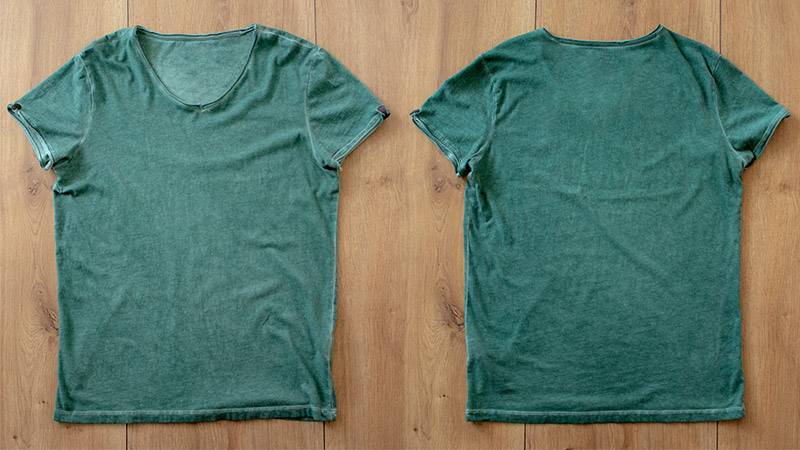
Natural Sponges
Sourced from plants like loofah, these sponges are biodegradable and a green alternative for kitchen cleaning tasks.
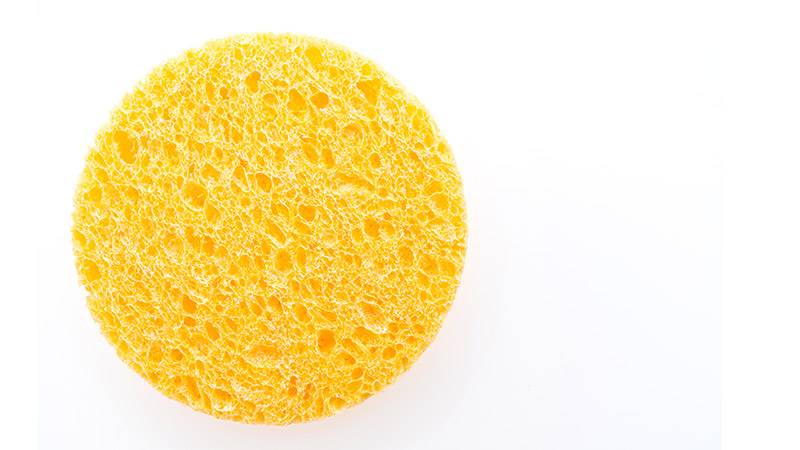
Are Paper Towels Biodegradable?
The terms “biodegradable” and “compostable” often intertwine in eco-conscious conversations, but they carry distinct meanings.
Biodegradability refers to the ability of a material to naturally break down and return to nature over time. The process can involve various organisms, including bacteria, fungi, and algae. However, the timeline isn’t specified; some materials might take years or even centuries to fully biodegrade.
On the other hand, compostability speaks to a material’s capacity to decompose in composting conditions, turning into nutrient-rich compost within a relatively short timeframe. This transformation generally happens within a few weeks to a few months in a controlled composting environment.
So, where do paper towels fit in? Being derived from cellulose fibers, paper towels are indeed biodegradable. They break down naturally over time, especially when exposed to elements and microorganisms.
Moreover, as we’ve explored earlier, they’re also compostable, capable of enriching soil when placed in the right composting environment. In essence, paper towels tick both boxes, making them an eco-friendly waste option compared to many other disposable products.
Are Paper Towels Recyclable?
Recycling has become a cornerstone of sustainable living, with many of us eager to divert waste from landfills. However, while paper products like newspapers or cardboard are commonly recycled, paper towels present a different scenario.
Most paper towels are designed to be absorbent. This means they often become soiled with food, grease, or other residues. Contaminants can disrupt the recycling process, leading to a lower quality of recycled material or even causing damage to recycling equipment.
Furthermore, many recycling facilities prioritize the processing of clean paper products because they have a higher market value. Given the potential for contamination, paper towels often don’t make the cut.
Another reason is the paper fiber length. With each recycling process, paper fibers shorten. Paper towels, having already been recycled multiple times in many cases, possess shorter fibers. This diminishes their recycling value.
So, while in theory, paper towels are recyclable, the practicalities of recycling processes and the characteristics of the towels themselves often make them unsuitable for many recycling facilities. Instead, composting emerges as the more eco-friendly disposal method for these everyday items.
Are Paper Towels Flushable?
The quick and straightforward answer? No, paper towels are not flushable.
While paper towels might appear similar to toilet paper, their design and composition differ considerably. Built for absorbency and durability, paper towels are made to tackle spills and messes, meaning they hold together much more robustly than toilet paper.
Flushing them down the toilet can lead to a series of problems. Their strength and resistance to breaking down can cause blockages in household plumbing, leading to potential costly repairs.
Moreover, on a larger scale, they can contribute to clogs in municipal sewage systems. This not only puts strain on wastewater treatment facilities but can also lead to environmental concerns if blockages result in sewage overflows.
In the realm of sustainable living, it’s crucial to make informed choices. While paper towels serve their purpose in cleaning, they should always find their way to a compost bin or trash can, never the toilet.
Frequently Asked Questions (FAQ)
Paper towels are considered brown compost, providing carbon-rich material to the compost pile.
Yes, all paper towels are biodegradable, but the time they take to degrade can vary based on additives and processing.
Yes, Costco paper towels can be composted, but it’s best to ensure they’re free from chemicals or dyes.
Yes, Bounty paper towels can go in compost. However, if they have printed patterns or dyes, it’s essential to check for eco-friendliness first.
Yes, Kleenex can be composted, but tissues used for colds or illnesses should be avoided due to potential pathogens.
Absolutely! Worms can eat paper towels, breaking them down and turning them into rich worm castings.
Conclusion
Navigating the world of composting can pose a myriad of questions, one of the most common being “are paper towels compostable?”
As we’ve explored, the answer is a resounding yes, but with nuances. From their decomposition rates to potential contaminants, there’s a lot to consider. Over my two decades in the composting realm,
I’ve learned that making informed choices is the linchpin of sustainable living. Every decision we make, down to the disposal of a single paper towel, impacts our planet.
I urge all composting enthusiasts to continually seek knowledge and share insights, turning our collective green efforts into a global movement. Dive deep, ask questions, and let’s compost with purpose!
References
- https://www.forkintheroad.co/compost-paper-towels
- https://envirotakeout.com/blogs/news/biodegradable-vs-compostable
